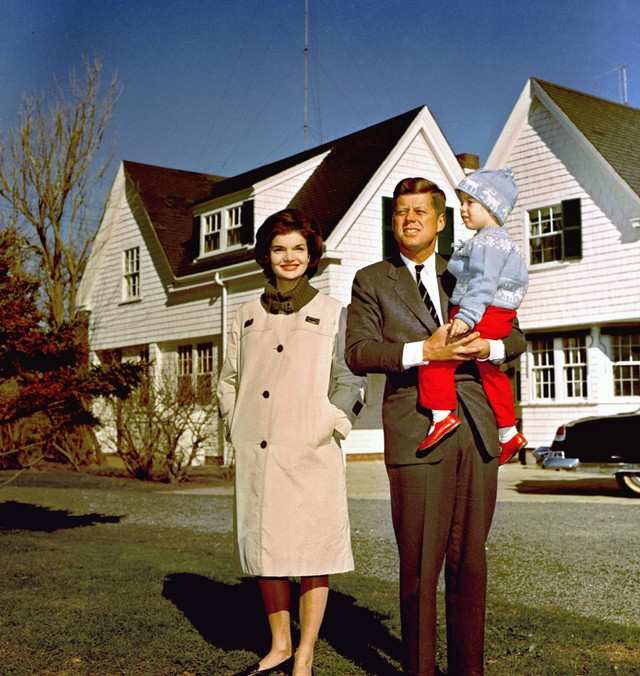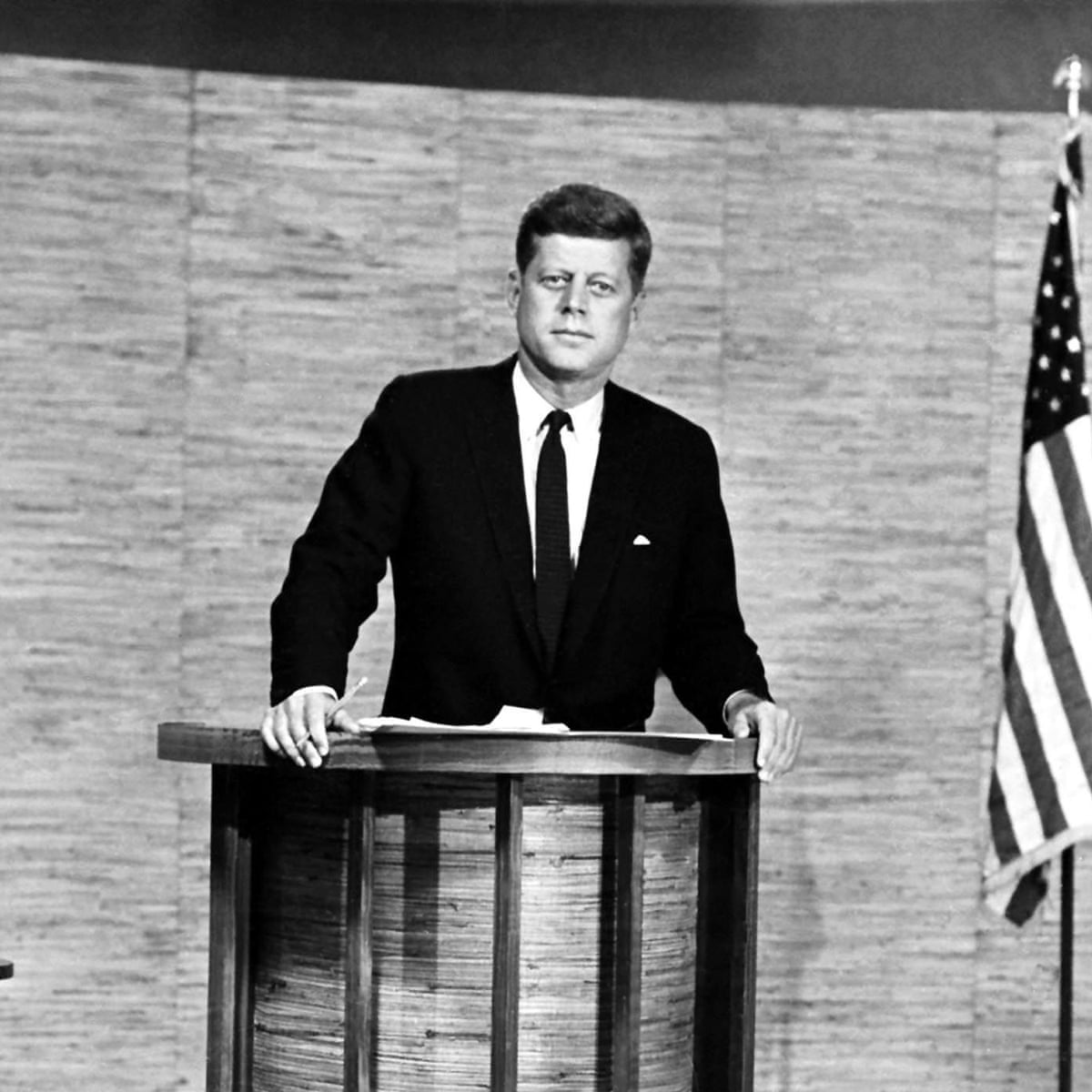The 35th President Of The U.S.
John F. Kennedy
Personal Information
John F. Kennedy
Was sworn in as
The 35th President of
The United States
Written by Danial Richter Photos by Jack Hills

Elected in 1960 as the 35th President of the United States, 43-year-old John F. Kennedy became the youngest man and the first Roman Catholic to hold that office. He was born into one of the America's wealthiest families and parlayed an elite education and a reputation as a military hero into a successful run for Congress in 1946 and for the Senate in 1952. As President, Kennedy confronted mounting Cold War tensions in Cuba, Vietnam and elsewhere. He also led a renewed drive for public service and eventually provided federal support for the growing civil rights movement. His assassination on November 22, 1963, in Dallas, Texas, sent shockwaves around the world and turned the all-too-human Kennedy into a larger-than-life heroic figure. To this day, historians continue to rank him among the best-loved presidents in American history.
President's Ealry Life
Born on May 29, 1917, in Brookline, Massachusetts, John F. Kennedy (known as Jack) was the second of nine children. His parents, Joseph and Rose Kennedy, were members of two of Boston's most prominent Irish Catholic political families. Despite persistent health problems throughout his childhood and teenage years (he would later be diagnosed with a rare endocrine disorder called Addison's disease), Jack led a priviliged youth, attending private schools such as Canterbury and Choate and spending summers in Hyannis Port on Cape Cod. Joe Kennedy, a hugely successful businessman and an early supporter of Franklin D. Roosevelt, was appointed chairman of the Securities and Exchange Commission in 1934 and in 1937 was named U.S. ambassador to Great Britain. As a student at Harvard University, Jack traveled in Europe as his father's secretary. His senior thesis about British's unpreparedness for war was later published as an acclaimed book, "Why England Slept" (1940).

John F. Kennedy's Senate career got off to a rocky start when he refused to condemn Senator Joseph McCarthy, a personal friend of the Kennedy Family whom the Senate voted to censure in 1954 for his relentless pursuit to suspected communists. In the end, though he planned to vote against McCarthy, Kennedy missed the vote when he was hospitalized after back surgery.
Leadership At Home
When power leads man toward arrogance, poetry reminds him of his limitations. When power narrows the area of man's concern, poetry reminds him of the richness and diversity of existance.
Abandoning plans to be a journalist, Jack left the Navy by end of 1944. Less than a year later, he was back in Boston preparing for a run for Congress in 1946. As a moderately conservative Democrat, and backed by his father's fortune, Jack won his party's nomination handily and carried the mostly working-class Eleventh District by nearly three to one over his Republican opponent in the general election.

He entered the 80th Congress in January 1947, at the age of 29,
and immediately attracted attention (as well as some criticism from older members of the Washington establishment)
for his youthful appearance and relaxed, informal style.
Kennedy won re-election to the House of Representatives in 1948 and 1950,
and in 1952 ran successfully for the Senate, defeating the popular Republican incumbent Henry Cabot Lodge Jr. On September 12, 1953, Kennedy married the beautiful socialite and journalist Jacqueline (Jackie) Lee Bouvier.
Two years later, he was forced to undergo a painful operation on his back. While recovering from the surgery, Jack wrote another best-selling book, "Profiles in Courage", which won the Pulitzer Prize for biography in 1957.
(The book was later revealed to be mostly the work of Kennedy's longtime aide, Theodore Sorenson.)

Remarkable Events
Peace is a daily, a weekly, a monthly process, gradually changing opinions, slowly eroding old barriers, quietly building new structures.

An early crisis in the foreign affairs arena occurred in April 1961, when Kennedy approved the plan to send 1,400 CIA-trained Cuban exiles in an amphibious landing at the Bay of Pigs in Cuba. Intended to spur a rebellion that would overthrow the communist leader Fidel Castro, the mission ended in failure, with nearly all of the exiles captured or killed. That June, Kennedy met with Soviet leader Nikita Khrushchev in Vienna to discuss the city of Berlin, which had been divided after World War II between Allied and Soviet control. Two months later, East German troops began erecting a wall to divide the city. Kennedy sent an army convoy to reassure West Berliners of U.S. support.
Kennedy clashed again with Khurshchev in October 1962 during the Cuban missile crisis.
After learning that the Soviet Union was constructing a number of nuclear and long range
missile sites in Cuba that could pose a threat to the continental United States, Kennedy announced a naval blockade of Cuba.
The tense standoff lasted nearly two weeks before Khurshchev agreed to dismantle Soviet
missile sites in Cuba in return for America's promise not to invade the island and the removal of
U.S. missiles from Turkey and other sites close to Soviet borders.
In July 1963, Kennedy won his greatest foreign affairs victory when Khurshchev agreed to join him and Britain's Prime Minister
Harold Macmilian in signing a nuclear test ban treaty.
In Southeast Asia, however, Kennedy's desire to curb the spread of communism led him to escalate U.S. involvement in the conflict in Vietnam.